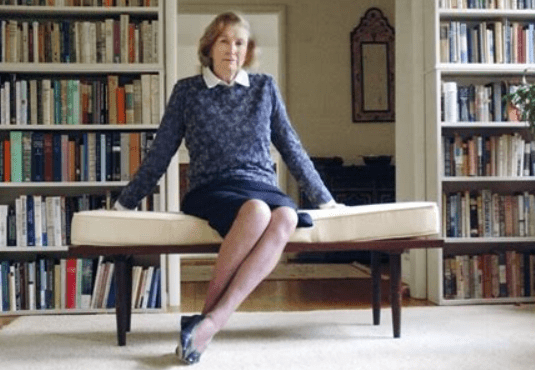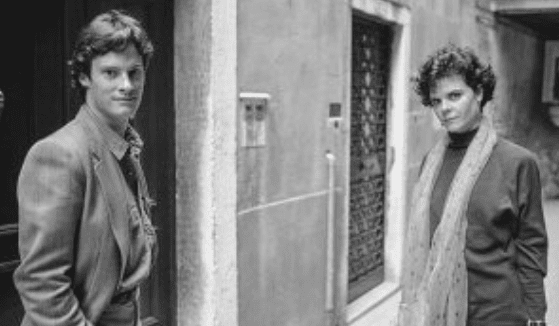
- She paid a steep price for her writing. Her father basically disinherited her.
Carrollton native Elizabeth Spencer’s long life spanned 98 years. The author of nine novels, five collections of short stories, a memoir, a play, and the recipient of numerous prestigious awards, Elizabeth mastered the art of the story better than almost anyone. Born to privilege and prominence in 1921, from her earliest days, she was an astute observer of everything that went on around her.
She commented in her 1993 memoir, Landscapes of the Heart, that “In a small town that’s been there for ages, some people look out and some look in. As for myself, I mainly just looked around me.”
There was a lot to see. She observed up close Jim Crow, the bloodiest of the Civil Rights struggle, and lived under 17 United States Presidents who reigned over a restless and epic cultural revolution.
A true blueblood with a regal, statuesque figure and a soft-spoken Delta dialect she never lost, Elizabeth Spencer used her pen to expose the flaws in a long-revered way of life that needed to change. Much to her chagrin, she ruffled a few feathers back home. Even her mother and father were not big fans of her writing.
In the beginning, Elizabeth was hurt by her parents and old friends’ criticism. But she stood firm in her belief that she was writing the truth, albeit an uncomfortable truth that violated the generations-old unwritten rule to ignore what might be uncomfortable. She was not a rebel as much as she was a passionate and sensitive soul with a high moral compass. Elizabeth was also kind, thoughtful, and not reactionary. Most would call her genuine in the best sense of the word.
In her memoir, she put it this way: “I was never cut out for the life I was supposed to live.” She paid a steep price for her writing. Her father basically disinherited her.
C’est la vie.
When she graduated as valedictorian from A.Z. George High School in 1938, she obediently headed for Belhaven College, a Presbyterian girls’ school at the time. Though rules were plentiful and restrictive, Elizabeth flourished. The freedoms, though few, she enjoyed at Belhaven gave her opportunity to sample vast artistic mediums that she had not experienced within the city limits of Carrollton.
In her senior year, she was part of a collegiate writers’ group of aspiring authors and poets who learned that Eudora Welty, a rising young author, lived just across the street from the Belhaven campus. Elizabeth was given the daunting task of telephoning the illustrious Miss Welty and requesting that she speak at an upcoming meeting.
Elizabeth nervously accepted the challenge, dialed her number, and was shocked that Miss Welty answered her own telephone. With her distinct Southern drawl and self-deprecating charm, Welty said, “I really don’t give speeches, but if your group could find a quiet corner in some room, I would be glad to come and visit with you.”
Such was the beginning of a friendship that lasted five-plus decades. As the students read their essays to Miss Welty and received her gracious critique, she and Elizabeth forged a friendship that went beyond Miss Welty’s mentoring. There was that, but they became lifelong friends and respectful colleagues.
So many times over the next fifty years, the two would connect in person and share their thoughts and projects in ways that only artists appreciate sharing with a kindred spirit.
Elizabeth graduated from Belhaven in the spring of 1942. She headed to Vanderbilt to pursue a master’s in literature and spent the next year ecstatically absorbing a smorgasbord of classic and contemporary works, studying in great detail and with a depth that she found intellectually stimulating. Elizabeth was burning to write and had a flair for prose that set her apart in the eyes of her professors. She was clearly a star.
World War II was still raging when Elizabeth received her master’s from Vanderbilt. She moved to Senatobia, Mississippi, accepting a job teaching English at Northwest Junior College.
Elizabeth paints a dreary picture of that year in her memoir. It was not teaching English that was soul-killing, but the “things the English teacher always does,” as it was explained to her later, that almost sent her over the edge.
Living in an ill-heated dormitory and traveling by pickup truck in rainy freezing temperatures to support the basketball team, eating greasy food in the cafeteria were unpleasant requirements, but assisting with the school paper, the school yearbook, teaching a Sunday School class, and directing the school drama production registered as beyond the pale. She had not one free minute in the week.
When an offer came to teach the next year at Ward-Belmont, a female finishing school in Nashville, Elizabeth jumped at the welcome opportunity. The return to Nashville brought her back to an environment that was stimulating intellectually, but even there, the daily grind of teaching was stifling. Elizabeth felt confined. The desire to write grew stronger although her teaching responsibilities left no downtime to actually do it.
She enrolled in a night class in downtown Nashville, where she joined a “workshop group” in fiction writing. It was just enough to keep her dream alive and to enjoy the camaraderie of other writers.
After a stint as a reporter for the newspaper, The Nashville Tennessean, Elizabeth accepted a teaching position at Ole Miss. Despite her lack of enthusiasm for teaching, such a bullet point on her resume just might lead to promising opportunities. She embraced it.
It was the 1948 publication of her first novel, Fire in the Morning, that gave her recognition in the literary realm. This was the novel that grieved her parents as they wondered, “How did a well-brought-up Southern girl learn curse words, and why was sex even mentioned? What could she possibly know about it?” At any rate, the elite of Oxford welcomed her into their exclusive midst. She was happy at Ole Miss.

In 1953, Elizabeth was awarded a Guggenheim Fellowship, a prize that gave her the golden opportunity to live in Italy and pursue writing full-time. Her father thought she should find a husband instead. But Elizabeth knew within her own heart that she had to write, or else. Or else she would never be whole. She must write.
Her favorite of all her writings was finished in Italy in 1954 and published in 1956. The Voice at the Back Door carried themes of race and a fictitious but all too real picture of the Mississippi Elizabeth remembered from her childhood. Though not well-received by the hometown friends and family who had loved her from birth, the national press gave her rave reviews.
The Voice at the Back Door was even nominated for the Pulitzer Prize for fiction in 1957.
Reliable rumors say that the Pulitzer Advisory Committee recommended Elizabeth’s book for the award, but that the Pulitzer Board thought it too controversial. They chose not to give the Pulitzer for Fiction at all that year.
It is noteworthy that the Emmett Till murder occurred in 1955. The entire country was a tinder box during that trial. Although Elizabeth’s book was completed before the Emmett Till debacle even occurred, its release collided with the raw pain and inflammatory headlines that ensued.
Four years later, Harper Lee’s To Kill a Mockingbird won the Pulitzer with a similar theme. The tide in the culture war was turning.
Her most famous work was not about the South at all. She completed Light in the Piazza in 1960, a novella published in the New Yorker about a North Carolina matron and her mentally impaired daughter whose lives are forever changed during a vacation to Italy. The critics loved the joyful romance. Light in the Piazza was adapted into a movie in 1962 and later into a Broadway play that won six Tonys.
Elizabeth married the British-born John Rusher in 1956. They lived for 30 years in Montreal where John taught English at Concordia University and Elizabeth taught creative writing — enjoying it much more at that season of life than she had previously. They moved to Chapel Hill, North Carolina where Rusher died in 1998. Elizabeth continued to write, speak, encourage new writers, and accept well-deserved accolades right up to her death in 2019.











